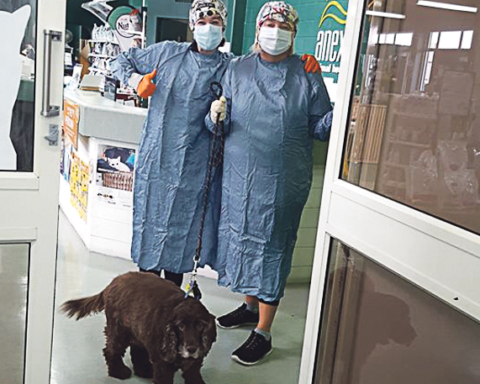Have you noticed a change in behaviour or decreased exercise level in your pet recently as the colder months are creeping closer?
Your pet may be suffering from a condition often referred to as arthritis (degenerative joint disease or DJD for short).
When people think of arthritis, they often think of it as affecting older animals only, however that is not an accurate conclusion.
Younger animals may also suffer from symptoms of arthritis, particularly if they have previously suffered a trauma or injury to bones or ligaments.
Arthritis, like in humans, can also be linked to hereditary diseases. In particular, larger or giant dog breeds are most commonly affected earlier in life, often due to the extra weight and strain on their joints and bones.
Do not be fooled – all species of animals can be affected by arthritis, however dogs tend to show the more obvious clinical signs. Cats on the other hand can be very sneaky at hiding their signs of arthritis and pain.
By being aware of the signs to look for, you have a better chance of picking up on some of the earlier, more subtle clinical signs of arthritis.
Signs of arthritis (DJD)
- Not wanting to exercise or play like usual
- Difficulty getting up – especially after resting or in the morning
- Difficulty jumping into the car, climbing stairs or jumping onto tabletops or benches (cats)
- Limping/change in usual gait (i.e. short-stepping)
- Change in character, behaviour or temperament
- Sleeping more than usual
- Resentment or aggression towards certain areas being touched
What can I do for my pet at home?
- A raised bed with padding – out of the way of draughts, in a warm area
- Maintaining an ideal body weight (excess weight will make things harder and more painful for your pet)
- Maintain a sensible exercise level – arthritic joints benefit from being kept mobile, however hard exercise can cause inflammation and increase pain.
Arthritis can have a huge impact on your pet’s overall quality of life. It is important you have your pet checked if you suspect a problem. Remember, animals can be very good at hiding pain.
When picked up early in the course of the disease, DJD can be effectively managed using a variety of supportive therapies selected for each individual animal.
For further information or advice, please contact the friendly staff at your local Anexa FVC Clinic.
The Anexa Team











